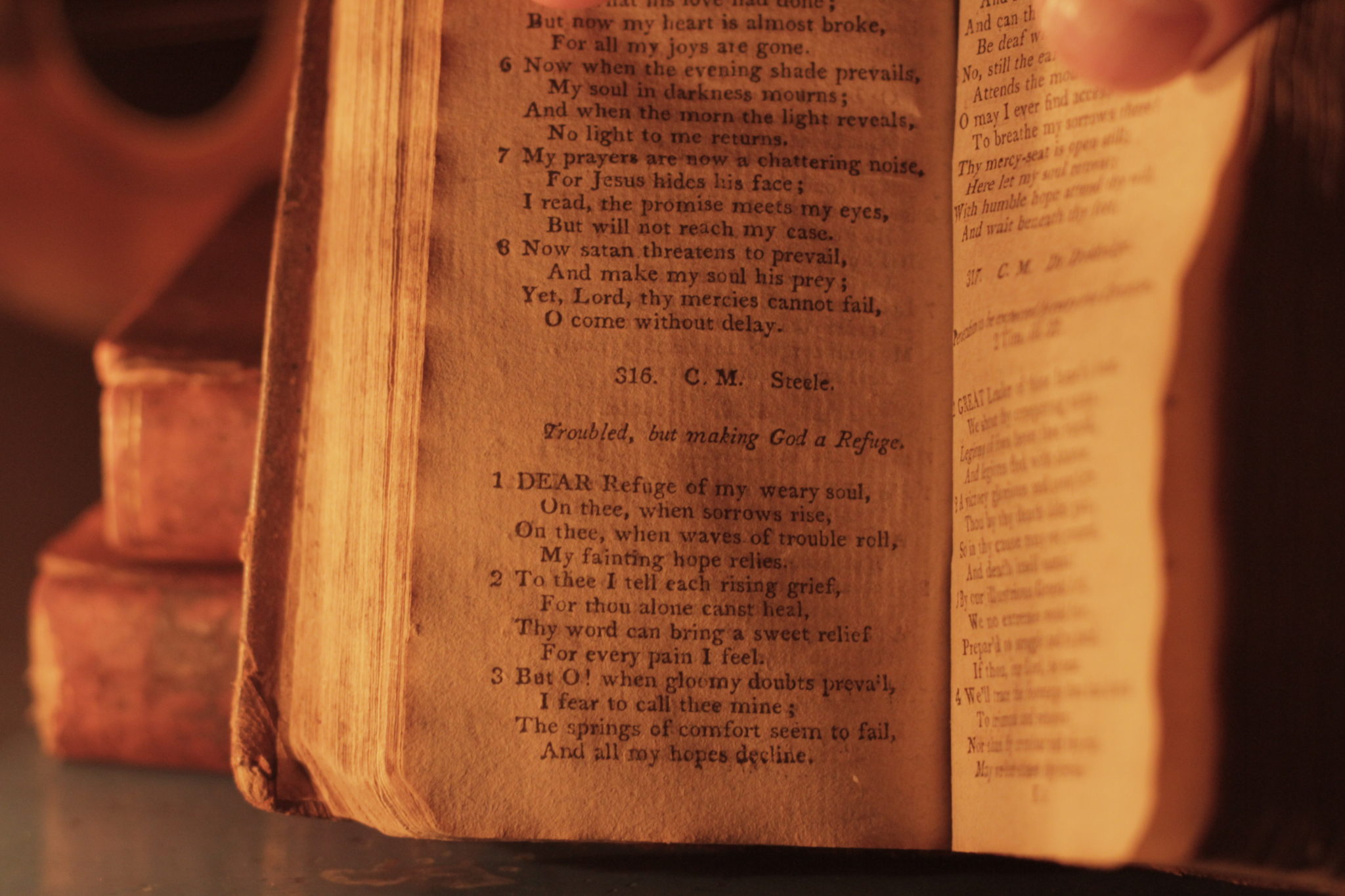Philippians 2:5-8, Acts 12:6-8, Romans 8:1-4
In 1738, Charles Wesley was struggling to find peace with God. He had served as a missionary to Georgia, but that had turned out disastrously bad. As Wesley laid on his sick bed, wondering whether death was at hand, he received a visitor. Peter Bohler, the leader of the London Moravians, asked Charles if he hoped to be saved. Charles replied that he did. Bohler pressed, ‘For what reason do you hope it?’ Charles replied, ‘Because I have used my best endeavours to serve God.’ Wesley recorded his reaction in his journal. ‘He shook his head, and said no more. I thought him very uncharitable, saying in my heart, ‘What, are not my endeavours sufficient ground of hope? Would he rob me of my endeavours? I have nothing else to trust to.’ (Arnold Dallimore, Charles Wesley, Crossway, p.58-59)
The problem with trusting our good works is that they are not perfect works. Jesus said that we are to love Him with all our heart, all our mind, and all our strength, and this is a considerably higher bar than just offering Him our best endeavors. God requires that we love Him perfectly from the moment we are born until the moment we die, with no lapses. Faced with this impossible requirement, many religious people attempt to take solace in such empty hopes as our best endeavors. But this hymn points us to a greater ground of hope—the power of the gospel.
Later in 1738, Wesley’s friend, John Bray, discovered Martin Luther’s Commentary on Galatians and brought it to Wesley, who was sick in bed. Wesley recorded in his journal again, “I spent some hours this evening in private with Martin Luther, who was greatly blessed to me, especially his conclusion of the second chapter. I labored, waited, and prayed to feel ‘Who loved me and gave Himself up for me.’” Luther had famously once said that the whole of the gospel was found in the personal pronouns, and Wesley found peace as the Lord gave him faith to believe that Jesus had died for him.
It is sometimes said that this hymn was Wesley’s first, written soon after his conversion. Hymn scholars are now convinced that “Where Shall My Wondering Soul Begin?” was actually his first hymn. But “And Can It Be” was written soon after and expresses beautifully and powerfully the converting power of the gospel that he had experienced.
Wesley is one of our most skilled hymnwriters. He begins with a piercing question to which no real answer can be given. “How can it be, that thou my God, shoulds’t die for me?” If we ever get to the point where God’s grace seems deserved or expected, we are in deep trouble.
We see Wesley’s grasp of Luther’s point in his use of the personal prounouns; my God, for me. But it is in the last verse where Wesley reveals the heart of his new-found hope. “Alive in Him, my living head, and clothed in righteousness divine.” Wesley had come to understand that in the gospel Christ gives us what God requires, His perfect righteousness through our union with Him. What Christ does, we get credit for; what He deserves, we get!
Rather than trusting in our best endeavors, Wesley gives us words to praise God for our only true hope, the righteousness of Christ imputed to His people through faith. This brings us not only, hope, but boldness to claim the crown not because of what we have done, but because of what Christ has done in our place.
——-
Listen to “And Can It Be” by Charles Wesley (1707- 1788)
And can it be that I should gain
An int’rest in the Savior’s blood?
Died He for me, who caused His pain?
For me, who Him to death pursued?
Amazing love! how can it be
That Thou, my God, shouldst die for me?
Amazing love! how can it be
That Thou, my God, shouldst die for me?
’Tis mystery all! The Immortal dies!
Who can explore His strange design?
In vain the firstborn seraph tries
To sound the depths of love Divine!
’Tis mercy all! let earth adore,
Let angel minds inquire no more.
’Tis mercy all! let earth adore,
Let angel minds inquire no more.
He left His Father’s throne above,
So free, so infinite His grace;
Emptied Himself of all but love,
And bled for Adam’s helpless race:
’Tis mercy all, immense and free;
For, O my God, it found out me.
’Tis mercy all, immense and free;
For, O my God, it found out me.
Long my imprisoned spirit lay
Fast bound in sin and nature’s night;
Thine eye diffused a quickening ray,
I woke, the dungeon flamed with light;
My chains fell off, my heart was free,
I rose, went forth, and followed Thee.
My chains fell off, my heart was free,
I rose, went forth, and followed Thee.
No condemnation now I dread;
Jesus, and all in Him, is mine!
Alive in Him, my living Head,
And clothed in righteousness Divine,
Bold I approach the eternal throne,
And claim the crown, through Christ my own.
Bold I approach the eternal throne,
And claim the crown, through Christ my own.
